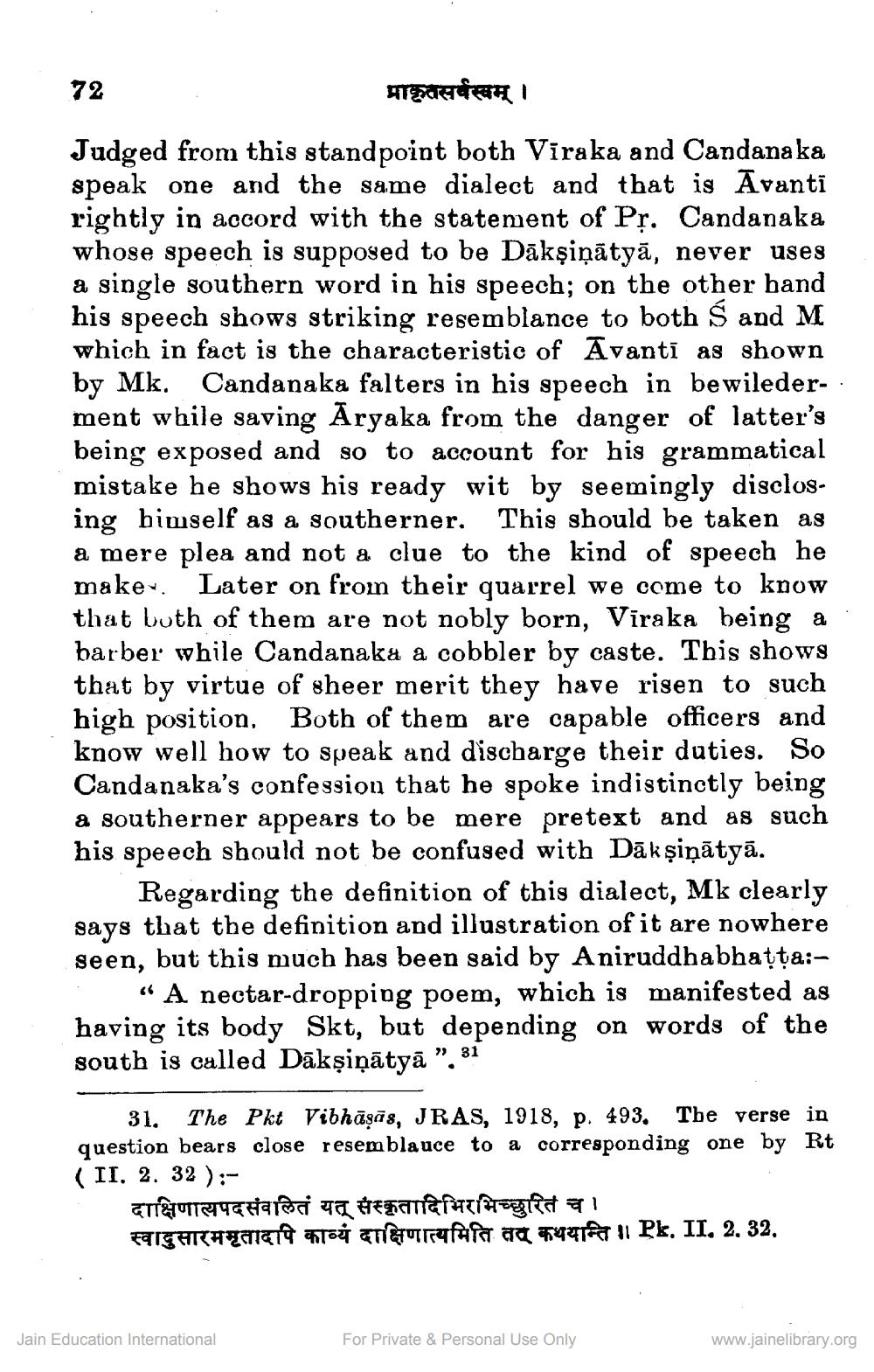________________
72
प्राकृतसर्वस्वम् । Judged from this standpoint both Viraka and Candanaka speak one and the same dialect and that is Avanti rightly in accord with the statement of Pị. Candanaka whose speech is supposed to be Dākşiņātyā, never uses a single southern word in his speech; on the other hand his speech shows striking resemblance to both Ś and M which in fact is the characteristic of Avanti as shown by Mk. Candanaka falters in his speech in bewilederment while saving Aryaka from the danger of latter's being exposed and so to account for his grammatical mistake he shows his ready wit by seemingly disclosing bimself as a southerner. This should be taken as a mere plea and not a clue to the kind of speech he make. Later on from their quarrel we come to know that both of them are not nobly born, Viraka being a barber while Candanaka a cobbler by caste. This shows that by virtue of sheer merit they have risen to such high position. Both of them are capable officers and know well how to speak and discharge their duties. So Candanaka's confession that he spoke indistinctly being a southerner appears to be mere pretext and as such his speech should not be confused with Dākşiņātyā.
Regarding the definition of this dialect, Mk clearly says that the definition and illustration of it are nowhere seen, but this much has been said by Aniruddhabhayta:
“ A nectar-dropping poem, which is manifested as having its body Skt, but depending on words of the south is called Dākṣiṇātyā ”. 31
31. The Pkt Vibhāṣās, JRAS, 1918, p. 493. The verse in question bears close resemblauce to a corresponding one by Rt (II. 2. 32 ):
दाक्षिणात्यपदसंवलितं यत् संस्कृतादिभिरभिच्छुरित च। FTIGARHUMICI H103 TETETffa ag 714278 11 Pk. II. 2. 32.
Jain Education International
For Private & Personal Use Only
www.jainelibrary.org




